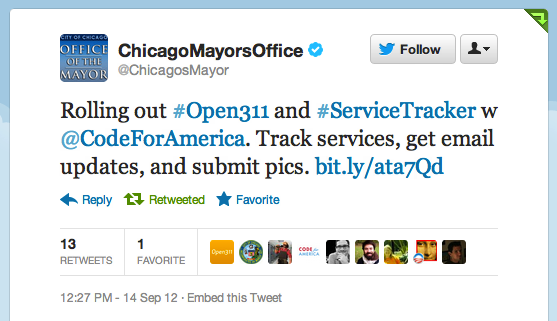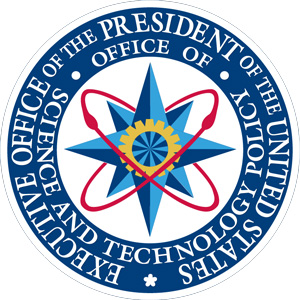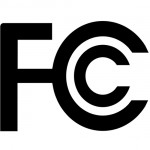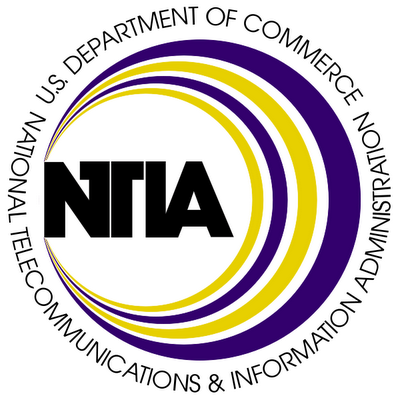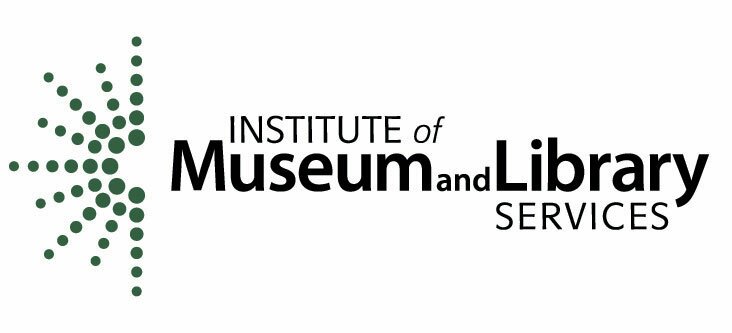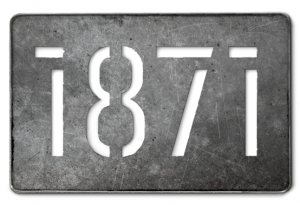Last year the State of Illinois, Cook County, and the City of Chicago announced its first-of-its-kind application development competition, “Apps 4 Metro Chicago Illinois (A4MC)”. This was the first government-sponsored apps competition in Chicago, and the first anywhere that included collaboration among three different units of government. Here’s a press release about the competition from the City.
The A4MC competition was run by the Metro Chicago Information Center, which closed in March 2012. The A4MC website is no longer available on the Internet. Here’s a list of as many entries as we could cobble together, along with some basic info about the apps, listed in alphabetical order. We’re certain that we’re missing some things and we’d love to hear any updates about your apps or new projects. Please write me at doneil@cct.org with updates!
42nd Ward Crime answers the question: How safe is your block in the 42nd Ward. Select a block, give your email address and at no charge an alert will be sent to the user’s email automatically whenever an incident is reported.
AllSchedules gives you access to a huge collection of transit schedules, for different transport modes (bus, metro, train, tram ferry, etc.), in multiple cities around the world.
Bikes on Metra – “Can I bring my bike on Metra right now?” is an application that answers this question with a simple text display of “Yes, you can” or “No, you can’t” for each Inbound and Outbound Metra train. This text display tells the user when a bike can or cannot be brought on board a Metra train, help the user find bike parking around Metra stations, and advise them on specific rules and tips for bringing bikes aboard.
Buster is a CTA bus and train tracker application that is designed for the subset of transit users that use the service every day as their main mode of transit.
Chicago and Friends is a social networking online magazine that connects the community through geolocation and Facebook.
Chicago City Crime is an Android application that provides a convenient and simple mechanism for users to quickly get crime information, based on their current location in Chicago. By becoming more aware of how many and what types of crimes have been committed around their area, this allows them to make informed decision and action that will benefit them and their community.
Chicago Crime Viewer helps people find maps of crime in Chicago for a better understanding of neighborhood issues and trends. Quick access to this authoritative information supports real estate, commuting, and situational awareness decision making across the City of Chicago.
Chicago Lobbyists is an open data, open government, and open source project intended to improve the transparency of interactions between the City of Chicago and lobbyists and their clients.
Chicago Local Guide is an Android app meant to help local people as well as tourists find interesting places and points-of-interest near them; locate specials and promotions from local businesses; get updates on cultural, social, and technology events around Chicago; and hear breaking local news.
The Chicago Metro Information (CMI) Real Time Screensaver is an application designed to turn any unused computer screen into an electronic billboard displaying “up-to-the-second” data images for the Chicago Metropolitan Area, such as the forecast, street traffic, and public transportation schedules.
Chicago Recycle Helper is a web application that helps people locate recycling drop-off points for various materials in the Chicago area.
Chicago River Viewer is an interactive mapping web application designed as a one-stop resource, so that anyone interested in learning more about the Chicago Area Waterway System.
Chicago Rider is designed to get you the information you need quickly. See nearby stops, favorite stops, and real time bus schedules at a glance.
Chicago Service Request is a web application that allows you to store additional information about a service request either as a picture, mapped location, and/or note.
Chicago TIF Viewer is a unique map viewer allowing free access to data and services with three features: Tax Increment Financing District Information, Ward Contact Information and US Census 2010 Unemployment Rates.
Chicago Wards I-Map is an interactive map of Chicago which provides ward information for every square foot of the city, which includes the ward number, alderman’s name, telephone number, and office locations.
ChicagoTXT is a text message feature that allows the user to get upcoming train and water taxi departure times to any phone.
ChiTxt provides residents a way to access city information without the need of an internet connection. Anyone who has a cellphone with standard text-messaging can use ChiTxt to get information about city services like health facilities, soup kitchens, and more.
Chicago Public Library (CPL) Mobile is designed to provide easy access to Chicago Public Libraries’ (CPL) resources everywhere for users on mobile devices and tablets.
Crime Alert is a cross-platform web application that serves to alert users of crime in their community and surrounding area as rapidly as possible, and receive information that is relevant to their lives.
FasPark helps drivers find street parking in real time.
FixIt! is a mobile app that allows Chicagoans to report issues, like public property damages, that require city attention. It automatically requests confirmation from participating citizens who are in the area and uses their responses to highlight critical reports while sifting out erroneous ones.
FOIAshare brings together FOIA request logs so viewers can share insight on the information that they have requested, view trends and search for records.
GoChicago grants users the ability to make a list of the places in Chicago they’d like to see, view directions to each place on a map, or call the place for more information.
Got Game? is designed for residents to choose an activity, find parks near them that support the activity and schedule a game, enabling people to meet up and use the facilities at the parks near them.
Heads-Up Chicago pulls together up-to-date information of all the FREE Admission Days at local Chicago Museums and “Kids Eat Free” Days at local Chicago Restaurants, into a clearly outlined monthly calendar and daily planner format. This software will help parents to easily plan their family trips into the city, while helping Chicago organizations and institutions gain exposure while playing a part of creating memorable experiences for families within the Chicago Metro area.
IBikeChicago is an Android app built to support and enhances the biking community in Chicago. The application allows the users to locate bike routes, bike racks, and bike shops in the City of Chicago.
IFindit Chicago is an Android app that is designed to help low income and homeless Chicago residents connect with critical resources such as medical clinics, food pantries, shelters, etc in an easy to use, comprehensive and sharable format.
InThirty is an application used to see what Chicago city transportation resources that a user can access within a thirty-minute train, bus, or bike ride.
LIGHT BULB FINDER empowers consumers to make informed choices based on their own lighting needs and financial priorities. The app estimates the energy savings from changing the bulb and how long it will take for the new bulb to pay for itself. It also calculates a home’s total energy savings potential and environmental impact for recommended bulb replacements.
Green Habit (GHabit) is a social network with a simple goal to inspire people and organizations to create a greener and sustainable habitat. By inspiring green habits, each individual will take action to recycle, reuse and reduce waste, conserve resources, live a healthy lifestyle, demand eco-safe products, be innovative and implement new ideas, and energize the green movement.
MassUp.us is “Chicago’s Social Cycling System” web application that serves communications and navigation information needs for social and personal bicycling. It broadcasts maps, news, weather and more, for smartphones and text messaging. MassUp.us is also used for details about local events (“masses”), to find riders, check conditions, record, share and chat.
Metro Chicago Farmers’ Markets is a tool helping residents find farmers’ markets, identifying and plots on the map, the nearest open farmers market to the current location.
Mi Parque is a bilingual participatory placemaking web and smartphone application that helps residents of the community contribute and share their vision for the future of Little Village’s new parks.
“Mom, We’re Bored” is an application for anyone with children aged 2-12 to help find activities kids will love, going on right now, nearby.
OkCopay is a comparison search engine for medical care that allows users to search for the procedure they need, compare local providers, and view their actual prices. OkCopay hopes to be a trusted resource all Chicagoans can use to find the medical care they need.
OwtSee is an Android based and a web based application that presents information about the Chicago parks and community events in one convenient place.
See How Mobile is an application that calculates how ‘mobile’ any Chicago address is. It determines the distance to the nearest El, Metra, bus, or highway, and then tells good (or bad) those distances are compared to every other location in the city.
Recycle City Chicago is an application that helps Chicago residents recycle by finding the closest recycling drop-off facility and driving direction to that location.
SpotHero is an application that efficiently connects parking demand and parking supply. We allow parking spot owners to earn income by renting their spot when it’s unoccupied.
Spothole is an ongoing project to create tools to enable Chicago residents to more conveniently participate in the process of maintaining their neighborhoods’ streets, starting with Logan Square.
SweepAround.US helps Chicagoans find out when residential street sweeping will next occur in their neighborhood, and allows them to sign up for email or text message reminders or subscribe to calendar feeds.
Taxi Share Chicago is an application designed to increase efficiency, reduce CO2 emissions and cut down on already congested streets and highways. The app allows users to find each other and share a cab to popular destinations around the city and to the major airports.
Techno Finder helps you find public WiFi near your location by using a cell phone or home phone, the web, or smart phone.
Thank you Officer is a web-based application initiative with the goal to mail a physical personal thank-you card to every police officer in Chicago, and let them know that we appreciate them.
TrailBlaze Chicago records and anonymously reports your bicycle tracks, allowing you to vote for new paths simply by carrying your phone while you bike.
Transit Stop: CTA Tracker is a quick and easy access to bus and train arrival time estimates for every Chicago Transit Authority bus and train stop.
Transitsocial -Transit Social is a unique and new place to search public transportation and socialize.
TreKing (Chicago) is an Android app that supports all four major transit systems in Chicago.
Vacant and Abandoned Building Finder is a tool for helping people and organizations find buildings in Chicago that are not in use and are potentially hazardous to the neighborhood.
WasMyCarTowed.com is a single-serving website that lets Chicagoans quickly answer the question, “Was my car towed?”
What’s Driving Costing You in Chicago? is a compact simple tool designed to educate divers about their driving costs. This tool provides map data including optional live traffic conditions and specific route information between start and end locations.
Here’s the announcement of winners:
FOR IMMEDIATE RELEASE
December 16, 2011
CONTACT:
Kathryn Auerbach – Metro Chicago Information Center
312-580-2597
kauerbach@mcic.org
APPS FOR METRO CHICAGO ILLINOIS WINNERS ANNOUNCED!
SpotHero wins Apps 4 Metro Chicago Grand Challenge, OkCopay is the Innovate Illinois Award winner and Recycle City Chicago and Chicago Recycle Helper with the Green Opportunities Award!
Mayor Emanuel’s Director of Social Media Kevin Hauswirth and Governor Quinn’s Chief Operating officer Andy Ross announced the winners of the Apps 4 Metro Chicago Illinois Grand Challenge and the Innovate Illinois Award today at Excelerate Labs. They were joined by the Delta Institute who announced the winner of the Green Opportunities App Award (GO Award). The Apps 4 Metro Chicago Illinois (A4MC) competition is facilitated by the Metro Chicago Information Center (MCIC), a nonprofit research, consulting and information resource committed to increasing the quality, quantity and accessibility of information, and guided by a fundamental philosophy that better information produces better decisions. The A4MC Competition is a collaborative open data civic applications competition which brought together software developers, nonprofits, and residents to create web and mobile applications over 300 data sets made available on the City of Chicago, Cook County, and State of Illinois data portals, and CMAP’s MetroPulse. The Apps 4 Metro Chicago IL Grand Challenge is the final, biggest, broadest and best round of the Competition. In this round apps could have any theme as long as they touched on Metro Chicago and the winners covered everything from local entertainment, transportation and leisure, to the environment, conservation and politics. The final round was decided by a Grand Challenge Judging panel comprised of experts committed to building Chicago’s entrepreneurial community and encouraging innovation. Grand Challenge Judge Troy Henikoff founder and CEO of Excelerate Labs further showed his support by hosting the announcement at Excelerate Labs.
The competition, which began six months ago on June 24th, continued the historic open data efforts taking place in Chicago, the Chicago metro area, and throughout Illinois. “I congratulate the winning app SpotHero, the other finalists, and all of the people who submitted applications during this successful contest,” said Mayor Rahm Emanuel. “My administration is committed to providing unprecedented access to data so that our residents and tech community can create innovative apps that can improve the quality of life in Chicago as well as foster new business opportunities.”
Cook County Board President Toni Preckwinkle recognized the Competition was intended to showcase the power and possibility that can stem from government and resident collaboration and combining data and technology. “The brilliant and innovative finalists in the Apps 4 Metro Chicago are all worthy of recognition,” said President Preckwinkle. ” We are entering a new age where citizens have the opportunity to create information technology that will dramatically improve how public data and services are delivered. We hope this collaborative effort will inspire even greater participation and will strengthen the relationship between the taxpayers and the government they elect to serve their interests.”
The Apps 4 Metro Chicago Illinois Competition also continued to drive economic development through innovation. “This Competition shows us the best of what can be created by Illinois’ innovators and entrepreneurs when they have access to everyday data that the government collects,” Governor Quinn said. “I commend both OkCopay and iFindit for using datasets made available on Data.Illinois.Gov to provide Illinois residents with valuable services that can improve their lives. Innovators like these spur economic growth throughout our state and nation and are the key to creating jobs and ensuring Illinois’ continued competitiveness in the 21st century economy.”
The Delta Institute of Chicago is an innovative leader in transforming the Great Lakes Region into the center of the green economy. Delta’s awards, totalling $2,500, went to the best apps that promoted green activity, such as energy conservation, waste reduction, recycling, consumption of foods from local, sustainable sources and other environmentally friendly practices. Due to a tie for first place, Delta split the $2,000 top prize between Recycle City Chicago and Chicago Recycle Helper. A $500 runner-up prize went to Light Bulb Finder.
After six months, over 70 submissions, amazing collaborations, and inspirational stories the Apps 4 Metro Chicago Grand Challenge Winners are ….
1st SpotHero- $10,000
Spothero efficiently connects parking demand and parking supply. We allow parking spot owners to earn income by renting their spot when it’s unoccupied.
2nd TrailBlaze- $5,000
TrailBlaze Chicago records and anonymously reports your bicycle tracks, allowing you to vote for new paths simply by carrying your phone while you bike.
3rd OwtSee $3,500
OwtSee is an Android based and a web based application that presents information about the Chicago parks and community events in one convenient place.
4th Chicago Local Guide $2,000
Chicago Local Guide is an android app meant to help local people as well as tourists find interesting places and points-of-interest near them; locate specials and promotions from local businesses; get updates on cultural, social, and technology events around Chicago; and hear breaking local news.
5th Mi Parque $1,500
Mi Parque is a bilingual participatory placemaking web and smartphone application that helps residents of the community contribute and share their vision for the future of Little Village’s new parks.
6th FasPark $500
FasPark helps drivers find street parking in real time.
7th allSchedules $500
AllSchedules gives you access to a huge collection of transit schedules, for different transport modes (bus, metro, train, tram ferry, etc.), in multiple cities around the world.
8th OkCopay $500
OkCopay is comparison search engine for medical care that allows users to search for the procedure they need, compare local providers, and view their actual prices.
9th iFindIt $500
IFindit Chicago is an android app that is designed to help low income and homeless Chicago residents connect with critical resources such as medical clinics, food pantries, shelters etc.
10th Taxi Share $500
Taxi Share is an application designed to increase efficiency, reduce CO2 emissions and cut down on already congested streets and highways. The app allows users to find each other and share a cab to popular destinations around the city and to the major airports.
Innovate Illinois Winners:
Grand Prize: Okay Copay- $4,000
Runner Up: iFindit Chicago- $2,000
Green Opportunities Award:
Co-Winners- Recycle City Chicago & Chicago Recycle Helper ($1000 each)
Runner Up- Light Bulb Finder- $500
The Apps for Metro Chicago Competition, facilitated by the Metro Chicago Information Center (MCIC), was launched in June of 2011 in order to inspire the development of applications using 250+ data sets released by the City of Chicago, Cook County, State of Illinois, and Chicago Metropolitan Agency for Planning. The Grand Challenge Round was open to all apps that used competition data and benefited the Chicago area. Support for the competition is provided by the John D. and Catherine T. MacArthur Foundation, The Chicago Community Trust, Illinois Science and Technology Coalition, and Motorola Mobility Foundation.
###
